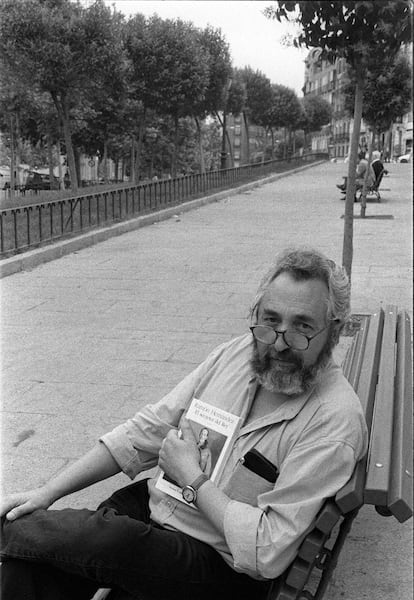The writer Ramón Hernández (1935-2024) has died in Madrid at the age of 89. Technical Engineer in Agricultural Operations, executive secretary of the Collegiate Association of Writers of Spain, visiting professor at several American universities such as the Mid-America State Universities Association Visiting Scholar or the Taft Honor Lecturer, director of the magazines Republic of Letters y Wild lifefrom the ICONA Library, awarded with literary awards, Hernández was considered above all a good man.
For Hernández, reality and imagination were the two broad routes of access to the literary universe. Through them, authentic creators face the human future. The reality It provides ingredients that connect with the cruel perplexity and injustice that accompanies us; the imagination, For its part, it makes perceptible what is transcendent, everyday and inconsequential about human existence when, through artistic creation, we manage to surpass the frontiers of knowledge inherent to the wide and foreign world. Hernández achieved what he said and continues to achieve in the 24 novels published by, among other publishers, Seix Barral, Argos Vergara, Planeta, Mondadori, Anaya, Plaza & Janés, Espasa (several were also translated into English). He wrote heterodox stories where the apparent absurdity of life becomes significant words of poetic roots (let us remember, to give only two paradigmatic examples, eternal memory y Curriculum vitae). In the specific case of an apparently childish narrative like Caramarcadathe work becomes an unexpected genuine crime novel and a legitimate bildungsroman.
In Hernández’s novels the boundaries between literary genres are questioned. He also composed historical novels about King Alfonso XIII and two more about the great admiral, Christopher Columbus. The shortest, Young Colombo, the academic Manuel Alvar reminded us that “it is very beautiful, it is gracefully told and has a rigorous temporal development. It is the novelist who knows about time more than we do, like an omniscient maker for whom chronology does not exist… It is not the logic of discursive time, but the metalogic that we discover in a dream world… The language that has been used is a language foreign to everyday uses: it belongs to the world of the stories to which they give life… The novelist has written beautiful, very beautiful paintings, and makes us believe that this is how the Genoese slums at the end of the 15th century must have been. ”.
Additionally, Hernández was and is a great storyteller (see Diaspora) and poet (read Capri Aquarium). He also cultivated the essay (let us recall his texts in The Impartial and his biography of Ángel María de Lera). Despite what was said, public recognition was somewhat elusive. In the fraternal words of Eugenio Rivera, the “little current recognition of his work” has been disconcerting considering that he has been – and I quote Rivera again – “one of the most original novelists of the so-called Spanish post-war generation, marked by social realism, a mold from which, however, our author’s narrative departs with an imaginative poetics of a universalist nature that tends towards the dreamlike.
Ramón Hernández left us on May 19, the same day that José Martí (1853-1895) died more than a century ago. This coincidence allows us to evoke some judgments by the Argentine writer and Harvard professor, Enrique Anderson Imbert. Like the poet and apostle of Cuban freedom, Hernández “belongs to us even to those of us who are not (Spanish). “It leaves (Europe)… it is one of the luxuries that the Spanish language can offer to a universal audience.” Rest in peace, my dear Ramón; You have not given more than we were able to give you.

